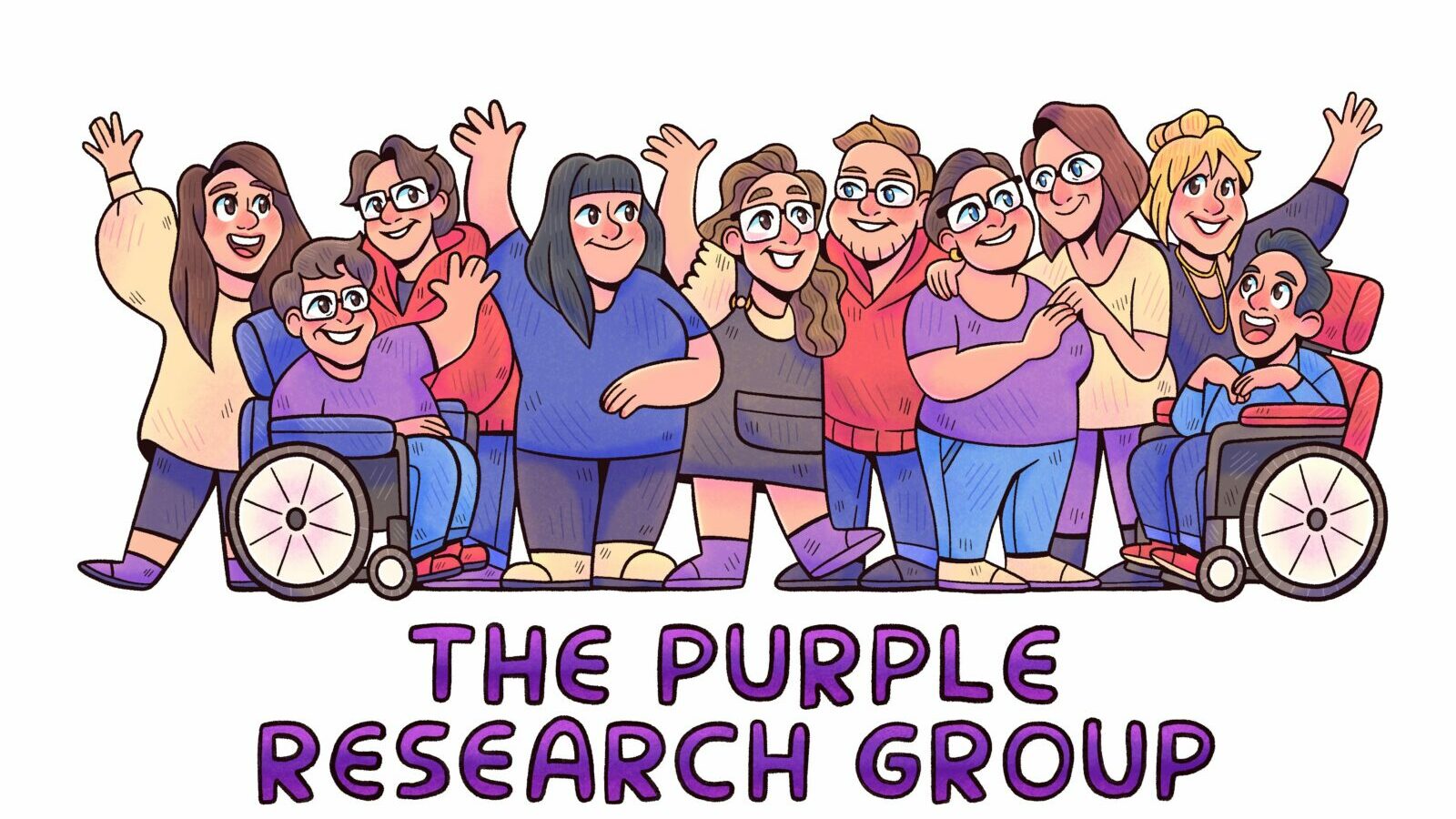The Purple Patch comic book is thought to be one of the first to be co-written by researchers with learning disabilities.
The comic is based on the work of the Purple Research Group, a team of seven researchers with learning disabilities whose vision is that all research should be inclusive and accessible.
The group was formed in 2020 as part of my PhD at the University of Leeds, which explored people’s experiences of arts-based learning at Purple Patch Arts. This Leeds-based charity provides inclusive creative learning opportunities for learning disabled and autistic adults.
We met on Zoom from August 2020 to July 2023 to conduct our research. We then needed an accessible way to share our findings, and the idea for a comic was born.
The comic, published last June with funding from the Society for Education, Music and Psychology Research, shares the group’s story of co-designing a participatory research project about experiences of arts-based learning.
Each group designed their own character, which was brought to life by artist Molly Pukes. The script includes direct quotes (such as about what is special about the arts) and artwork from the group.
The co-researchers and I had a conversation about making the comic and how it shares important messages about who can and should be a researcher.
The aims
Purple Research Group: We wanted to make it easier for people to access the information from our research and to learn about our ideas. The comic also shares our views on what a better world would be like. People with learning disabilities need to have their voices heard and the comic is a way for us to put our views across.
Melissa Kirby: It’s important for inclusive research to share findings in accessible ways. I had to write a thesis, but this wasn’t accessible to most people. A comic seemed like the ideal way to share research in an engaging, creative way.
The process
PRG: We wrote the script together on Zoom. We talked about our ideas and Melissa typed it up. We all have a character, and chose what we wanted them to look like. Each of our research themes is an “island” in the story, and we designed these based on our visions of a “perfect world”. Then our artist, Molly Pukes, brought it all to life.
MK: We shared early versions of the comic with Purple Patch participants and had great feedback, which we incorporated into the final version. A few people said they wanted to be researchers too, which was exactly what we had hoped the comic would achieve.
The message
PRG: We wanted to spread the word and make our research available to everyone. We want people to know that people with learning disabilities can be researchers, writers and creatives. We can be anything we want to be.
MK: The comic shows research is better when researchers, communities and organisations work together.
The benefits
PRG: Being able to do the comic was brilliant. It was teamwork! We have all learned new things – from not knowing what research was five years ago to creating our research comic. We also won an award from the University of Leeds for our research, which made us feel very proud.
MK: Our research will reach more people. How we share research sends a direct message about who it is for, and who can and should be a researcher. Our message is that anyone can be a researcher.
Melissa Kirby is a researcher at the University of Leeds. Purple Research Group members who collaborated on this article are John Bartle, Ella Schofield and Tracey Barrett





